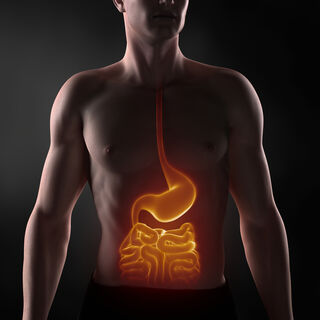Depression
Scientists Pinpoint Gut Bacteria Associated With Depression
Specific gut microbiome combinations may be linked to major depressive disorder.
Posted December 4, 2020 Reviewed by Devon Frye

New research gives us deeper insights into the link between major depressive disorder (MDD) and specific microbiome disturbances in the gut ecosystem.
This state-of-the-art study (Yang et al., 2020) identified 47 gut bacteria species, three bacteriophages, and 50 fecal metabolites that were more or less abundant in a sample of 156 MDD patients compared to 155 healthy controls. The findings were published on December 2 in Science Advances.
Previous research (Jiang et al., 2015) identified a correlation between altered gut microbiota and major depressive disorders. However, until now, scientists haven't pinpointed specific gut microbiome signatures associated with MDD.
Jian Yang and colleagues' latest research at the National Clinical Research Center for Mental Disorders and the Advanced Innovation Center for Human Brain Protection in Beijing, China, pinpoints specific gut bacteria and metabolic biomarkers that appear to be common among people diagnosed with major depressive disorder.
According to the authors, they were able to identify and independently validate "a combinatorial marker panel that could distinguish MDD from healthy subjects with high accuracy."
Notably, Yang et al. found that MDD patients tend to have higher levels of gut bacteria belonging to the genus Bacteroides (10 species) and lower levels of gut bacteria belonging to the genera Blautia (5 species), Eubacterium (5 species), and Clostridium (3 species). The "Figures & Data" from this open-access article show all the gut bacteria differences between MDD and healthy control subjects.
Yang et al. speculate that having more Bacteroides in the gut microbiome's ecosystem may help to explain why people with clinical depression tend to have higher pro-inflammatory cytokine levels and more systemic inflammation. Additionally, having fewer Blautia gut bacteria might exacerbate inflammation via the dysregulation of anti-inflammatory mechanisms (Fang & Zhu, 2019).
Although Yang and co-authors didn't find any significant differences in the overall viral signatures of the MDD group's gut virome, they did identify "three bacteriophages, mainly assigned to Podoviridae at the [virus] family level, were differentially expressed in the MDD subjects relative to healthy controls." Based on this observation, the authors suggest that future studies should investigate these phages more closely.
The discovery of specific bacterial and metabolic signatures that are common among people with MDD has clinical implications. In the near future, doctors and psychiatrists may have the ability to reaffirm a major depressive disorder diagnosis (and avoid misdiagnosis) based on someone's gut ecosystem profile.
"Our findings lay the foundation for understanding the roles of the overall gut ecosystem in major depressive disorder pathogenesis and may facilitate developing objective MDD diagnostic methods," the authors conclude.
References
Jian Yang, Peng Zheng, Yifan Li, Jing Wu, Xunmin Tan, Jingjing Zhou, Zuoli Sun, Xu Chen, Guofu Zhang, Hanping Zhang, Yu Huang, Tingjia Chai, Jiajia Duan, Weiwei Liang, Bangmin Yin, Jianbo Lai, Tingting Huang, Yanli Du, Peifen Zhang, Jiajun Jiang, Caixi Xi, Lingling Wu, Jing Lu, Tingting Mou, Yi Xu, Seth W. Perry, Ma-Li Wong, Julio Licinio, Shaohua Hu, Gang Wang, and Peng Xie. "Landscapes of Bacterial and Metabolic Signatures and Their Interaction in Major Depressive Disorders." Science Advances (First published: December 02, 2020) DOI: 10.1126/sciadv.aba8555


